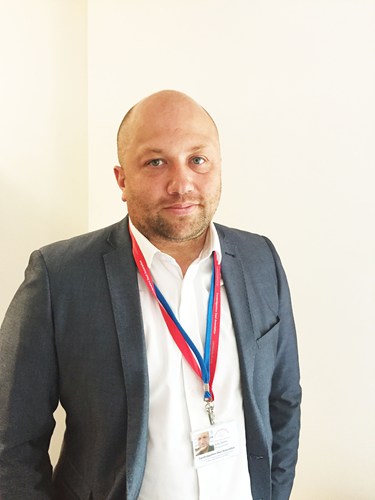Deaf Football Co-ordinator
Andy Palmer, Deaf Football Co-ordinator for Peterborough United, shares his insights.

What types of deaf young people do you coach?
We coach kids from age nine up to our oldest player who is 40! We have two youth teams – under 13s and under 16s. Our players have different levels of deafness and use sign language or speech. We’re a club for any young person with hearing loss and it works really well.
The youth teams play other deaf teams at tournaments and we also play local teams of hearing children. We do pretty well against them too!
How do you communicate with the deaf young people you coach?
We communicate with kids in the way that suits them. Our coaches are experienced and have had deaf awareness and sign language tutoring or are deaf themselves. The most important thing is to structure the sessions so they are inclusive.
We use visual methods, demonstrations and position the players so everyone can see what’s happening. During matches we communicate using signs, voice and gesture.
The key to success though is that the players know what to do before the whistle blows!
How do you plan/prepare for coaching deaf pupils?
Our coaches plan the sessions based on the skills and abilities of the players and what’s coming up, like a match or tournament. The preparation is really based on ensuring there’s enough time to explain the session, that we have means to do it visually and the coaches know the kids’ communication styles individually so they feel included.
How have you adapted your coaching style?
The main adaptation is that any instructions for a session are given when all the kids are together so communication is easier. Once they break apart, it can be a challenge to let everyone know something new.
Do deaf young people face any challenges on the pitch other than communication?
Some of our players have also had balance issues and that can lead to the odd fall but that needn’t stop any player getting involved. There is also variation in ability between players. To make sure everyone has fun we match players of similar ability in matches and make sure the focus of the club isn’t just on winning. It’s about giving everyone the chance to reach their own potential.
What’s most enjoyable about coaching deaf pupils?
The best part is when you realise that the kids are enjoying the experience. That might be when someone scores a goal wearing a Peterborough shirt for the first time; they probably have dreamed of that moment.
Do you have any advice for other deaf children who want to play football?
Have a go! There are lots of deaf children across the country of all shapes, sizes and abilities who really enjoy it. They probably all felt apprehensive when they started but made friends, enjoyed what football has to offer and had very positive experiences.
The Football Association (FA) runs a comprehensive deaf football talent programme so it’s a real possibility that one day, if a player has the talent and commitment, they could represent their country.
To anyone thinking of setting up a deaf football programme in their area, get in touch on [email protected].
